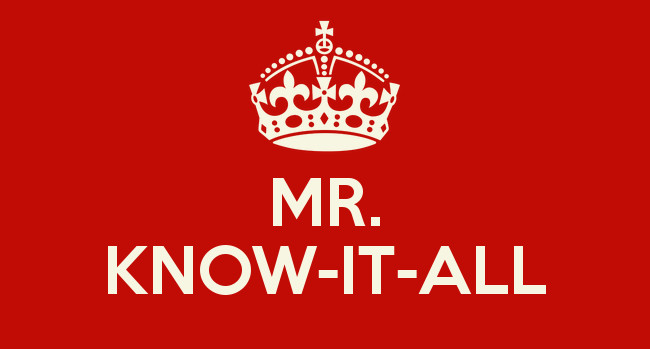
Knowing vs. Learning
Fear can turn employees into "knowers" who can't admit shortcomings and don't solve problems. Here's how to teach them to learn...
Are you a knower or a learner? More important, is your culture a knowing or learning one? If you answer one way ("we are learners"), your odds of successful innovation are high. If you answer the other way ("we are knowers"), you are making your innovation life much harder than it has to be.
Let me explain!
A learning culture understands that effort can increase intelligence. It takes as a given that there is a learning gap—that all knowledge is not currently contained in the heads of the people inside its organization—and it is not only open to new ideas but goes out of its way to find concepts contrary to its own. It recognizes that there could be a better way to do things and that its best methods can be made obsolete over time.
A learning organization readily acknowledges its incompetence and sees this as an opportunity to gain additional knowledge and improve. Perhaps most important, it sees mistakes as a natural part of learning, growing, and getting smarter—an extremely important point.
Fear of failure makes growing, getting smarter, and becoming a learning organization all but impossible. Your fear turns you into a group of "knowers" afraid of admitting their shortcomings or conceding that they don't know everything.
Focus on the outcome—and learning!
Perhaps the three most important words in a leader's vocabulary are "I don't know." These words, followed by an empowering phrase such as "but let's figure it out," are the keys to the innovation castle. Fearless humility exposes possibilities. Great leaders understand that when you are afraid to expose your own fear, ignorance, or blind spots, you are shutting out the very people—members of your team—who could help you make inspired connections that spur innovation.
The reason so much innovation comes from entrepreneurs is that most of them don't care if you think them stupid or naïve. They're so focused on the outcome that they welcome any type of input that helps them get there, including things they don't find particularly flattering. What some would call failure, innovators—such as the best entrepreneurs—see as an opportunity to be inspired, educated, or redirected.
At some point in their careers, most people wind up in a meeting filled with a company's big thinkers. The agenda is crafted to keep things moving. Carefully buried at the bottom is a project with a fun name such as "Mount Rainier." But despite its cute code name, the project appears to be a debacle of Biblical proportions. Rainier is so far over budget that all your team members want to disassociate from it, fearing their careers will be linked to this catastrophe.
"We can't keep funding this project," says the chief financial officer. "Sales has already lost confidence and R&D says it won't be ready until next year. I say we scrap it."
Teaching "knowers" to learn!
This is the type of moment that separates fearful masses from skillful leaders.
In companies where fear rules the day, you can imagine how this situation plays out. While a few brave souls offer ideas, the rest of the room turns into "knowers." They categorically knock down each idea with phrases like, "we tried that, and it didn't work" or "that would never make it through legal." When you are afraid, the simplest way to feel stronger is to "knowingly" knock down other people's ideas. Shutting down ideas is a symptom of a knowing culture.
How do you turn a knowing culture into a learning culture?
Here is a simple technique to start the transition. The next time you are facing an incredibly difficult situation, try this: Think of the hardest challenge related to the project. Now say it out loud in the form of a wish. For example, "I wish we could figure out how to get sales excited about this idea." Or "I wish we could find a way to cut the price by 20%." If you're really brave, you can add something like: "I've been thinking about this for weeks and I could really use some ideas here."
By presenting challenges in this way, you show the humility of a leader who is open to learning. You create a platform for ideas that will get you—and perhaps your team—unstuck.
Strive to be a learner leader this year. Let your team hear what has you stuck. Make wishes they can help come true. If you do this consistently, you'll find that they will follow suit. Before 2017 comes to an end, you'll be surrounded by learners who naturally help each other create better solutions.
My latest book, “Insider Strategies for the Confident Communicator,” is here. Get your copy with my compliments.
7yValuable thoughts, Dean. Sustained learning is the key to professional development in any field.